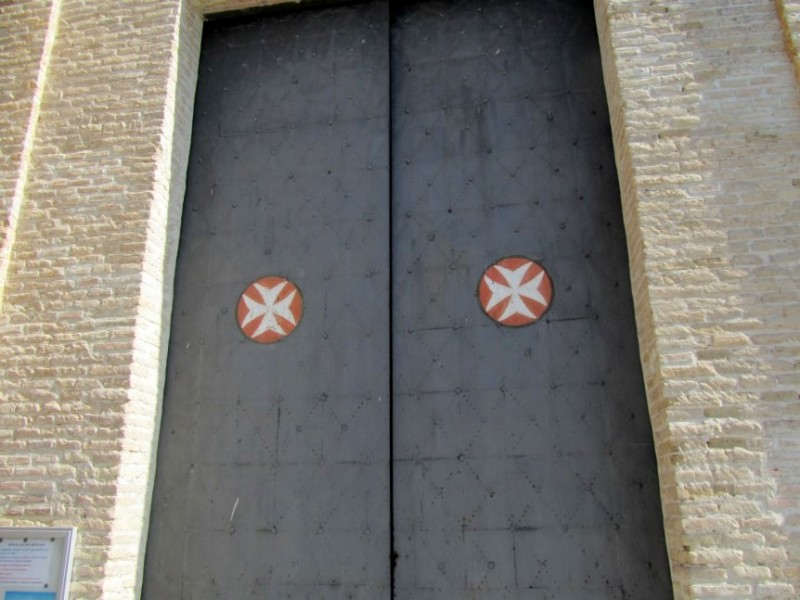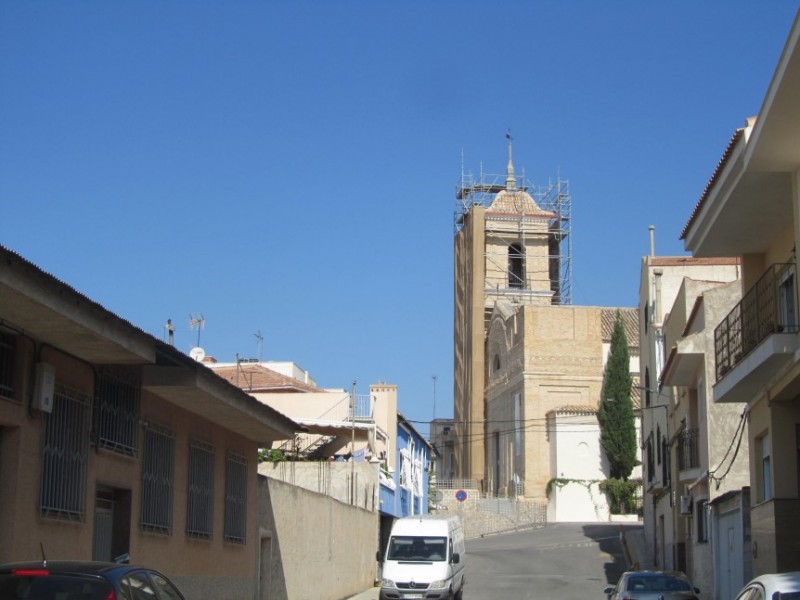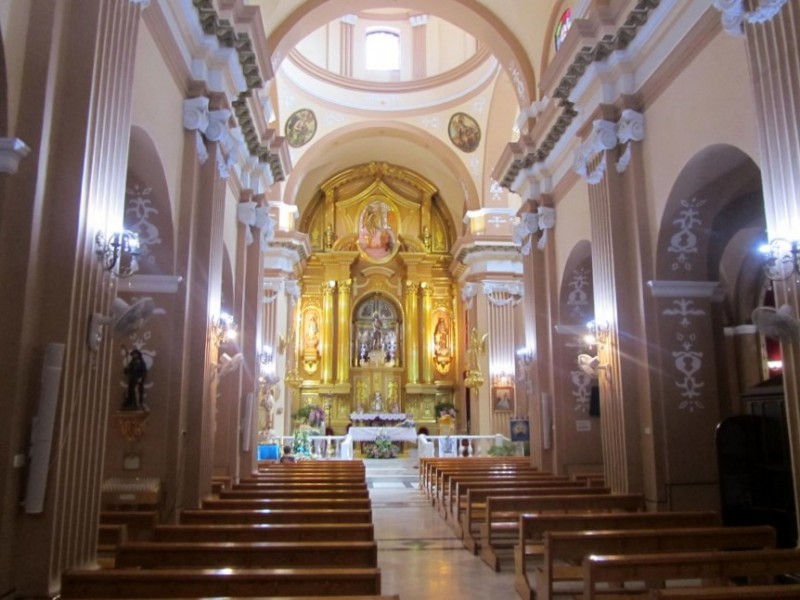The church of San Juan Bautista in Archena
Centuries of delays marked the construction of the main church in Archena
The main church in Archena is located not in the town centre, as tends to be the case due to the historical importance of the centre of Catholicism in most Spanish towns, but at the southern end of the built-up area at a site which was previously occupied by a mosque during the centuries of Moorish rule in the kingdom of Murcia.
This is a strategically advantageous location, affording views out over the flood plain of the River Segura and the main communications route which provided access into Archena from Ceutí and Murcia, and originally, after the Moors were expelled from Spain or forced to convert to Catholicism in the last years of the 15th century, it was logical in Archena for the structure of the Mosque to remain. It was here and to the rest of the Ricote valley that many of the converted Moslems repaired, and it seems entirely appropriate that in Archena the Mosque was converted into a church just as the Moslems had been transformed in to Christians.
In addition, the Catholic church sanctioned such adaptations in a Papal Bull issued in 1505.

The history of the current church of San Juan in Archena
By 1547, though, it is known that significant rebuilding had been undertaken, and under the auspices of the military and religious Order of San Juan the new place of worship had been dedicated to San Juan Bautista (St John the Baptist). At that time only seven pews were installed and the three main chairs were for the use of the higher dignitaries of the Order.
This rather primitive church stood throughout the 17th century despite the need for constant repairs, and documented references to the building consist almost entirely of complaints regarding the lamentable state of the structure and the cost of maintaining it.
But in the 18th century the population of Archena began to increase, and with Catholicism placing great importance on its parish churches the Order of San Juan, which still ruled over local affairs, decided that the time had come to provide a new place of worship. Under the supervision of Gregorio de la Rosa, who also oversaw the construction of the Town Hall, work began in 1770, and within 15 years the new structure had grown to incorporate part of the old.
36 years previously a large bell had been installed in the church, and in Archena as in many other rural parts of Murcia this was central to the life of the town, marking the hours of Mass and prayer and orientating the agricultural community as to the start and finish of irrigation schedules in the countryside.
However, after 1785 the church was left incomplete until work resumed in 1819 at the command of King Fernando VII, only to grind to a halt again the following year, leaving the side chapels complete only to the height where the arches begin. As late as 1835 this remained the situation, and Mass was held in the middle of the nave.
In the mid-18th century the feudal-style control exercised by the Order of San Juan in Archena was finally ended by the confiscation of assets from religious orders, and from 1850 onwards the church was gradually completed using donations made by the congregation and especially by the family of the Vizconde de Rías, who acquired the Balneario of Archena when it was auctioned off after being confiscated from the Order. By 1889 the two main chapels were complete, in 1890 a new roof was installed and in 1897 the sacristy was re-built.
Almost the only recognition of the role of the Order of San Juan in building the church are the emblematic crosses painted on the main doors, a symbol which is not featured in the interior decoration.
By the early 20th century, the church was finally complete, although the intended symmetry of the main façade never materialized as plans for a second tower were abandoned: for some observers, this still lends it an air of “work in progress”. In fact, since 1990 various restoration projects have been carried out, and indeed the latest was still in progress in 2017.

Religious artwork and images
As was the case in so many churches throughout the Region of Murcia and the rest of Spain, much of the religious artwork and imagery in the church of Archena was destroyed or lost during the Civil War, which lasted from 1936 to 1939. In the Iglesia de San Juan Bautista this included the main altar screen, and the looting even continued later as a painting of San Juan by Enrique Salas which hung over the altar has also been lost.
However, in the decade after the conflict ended numerous replacement works were commissioned and donated, and those which can now be seen include the statues of the Sagrado Corazón de Jesús and a Virgen de la Piedad in the two chapels on either side of the altar, as well as the figures of Christ with his hands bound (Carrillo, 1944), Jesus the Nazarene (also Carrillo), and a copy of Francisco Salzillo’s “La Dolorosa”, which can be seen in the Salzillo museum in Murcia.
Others items of note are Salas’ crucifixion scene, Juan Carrillo’s altar screen (1987) containing the figure of Nuestra Señora del Carmen, the figure of Santa Lucía (José Sánchez Lozano) and two wooden confessionals.
At various times of year the figure of the Virgen de la Salud, who normally resides in the church in her name in the Balneario, is brought to the church, and these include the “Octovario” at the end of September.
Mass times
These are important not only for churchgoers, but also for those who wish to visit the inside of the church, as the Iglesia de San Juan Bautista is not open all day: the parish priest is happy to open up for curious visitors, but is not always available.
In winter Mass is held from Monday to Saturday at 19.00, and on Sundays at 9.00, 11.30 (children’s Mass) and 19.00. An additional service is performed on Sundays at 10.00 in El Hurtao on the first Sunday of every month, and in Las Arboledas for the rest of the month.
During the summer the daily evening Mass is held back until 20.30, and in July and August the 11.30 Mass is suspended.
Address: Plaza de la Iglesia, 14, 30600 Archena (Murcia)
Click for further information about the Archena municipality






